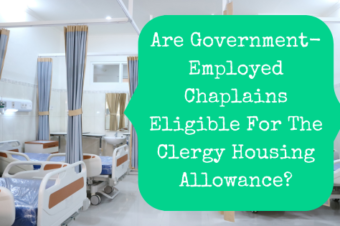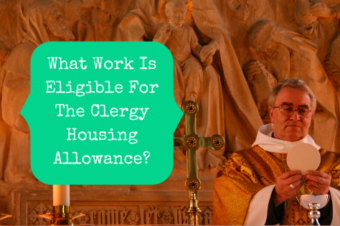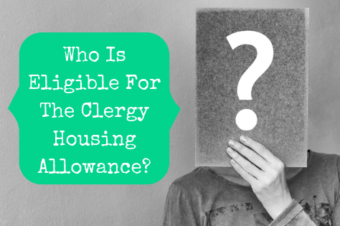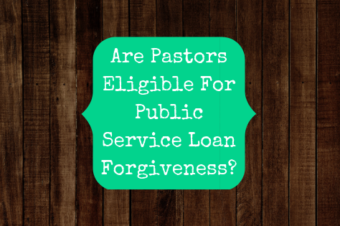We’ve made it to the end of 2020. For the last blog post of every year, I provide a list of the top ten posts that have received the most views during the year. It gives you a chance to catch up on anything important that you may have missed during the year and it gives me the chance to slack off and write an easy post over the holidays. It’s a win-win, don’t you think?
Combined, these posts have been viewed around 60,000 times this year. What is everyone so interested in? Here they are in order of popularity: (Each title is linked to the article, so you can read them.)
1. Secular Jobs For Pastors: 9 In-Demand Skills You Already Have
This article was in the top spot last year as well and ranked #3 in 2018. I think it has become even more important this year as high unemployment rates and decreased giving have caused many pastors to look outside the church for income.
The post describes the different skills that most pastors have and how they can be communicated in a way that the secular world will understand (and appreciate!). The truth is that you already have a lot of highly-marketable skills, you just need to know how to translate them into secular vernacular. This is particularly helpful if you are looking to create a resume for a secular position. If that’s you, make sure to check out our article on writing a relevant resume as well.
2. Clergy Housing Allowance Calculator
This isn’t actually a blog post, but it’s the second most popular page on Pastor’s Wallet so I thought I should include it. It is a simple, interactive calculator that you can use to calculate your housing costs. It’s not overly sophisticated because I built it myself (contact me if you have skills in this area and want to make the site better!), but it provides you with an estimate of your annual eligible housing costs and a recommended amount to request based on adding a 10% buffer for unexpected expenses. If you haven’t checked it out, go ahead and try it for 2021!
3. How Much Housing Allowance Can A Pastor Claim?
This is a big question and I get a lot of emails asking me different versions of it. The housing allowance is one of the greatest financial benefits available to pastors, so it makes sense that you would want to maximize it. This article goes through the legal limitations on the housing allowance, how to apply the law to your particular situation, and some things to consider before actually requesting your housing allowance. If you aren’t already a housing allowance pro, this one is a must-read.
4. How To Calculate Fair Market Rental Value For The Clergy Housing Allowance
It isn’t any wonder that this article comes in right after the last since many people probably click over and read it from the last article. One thing you would read about how much housing allowance you can claim is that it is limited to the fair market rental value of the furnished home. That, of course, begs the question, How do you calculate fair market rental value? I wrote this article to answer that for you.
5. 2020 Housing Allowance For Pastors: What You Need To Know
By now you’ve probably noticed a theme… housing allowance. It’s a popular topic on this blog. This article covers some important things for you to know about the housing allowance, including how it could affect your eligibility for the child tax credit, how it is affected by a home-based business, how to change it mid-year, and even how to claim one in retirement. The article also includes a free downloadable housing allowance worksheet in both .pdf and .xlsx formats.
6. Do Pastors Pay Social Security And Medicare?
Now we move away from the housing allowance to another important topic, Social Security and Medicare taxes. This is a really important one for pastors because many don’t realize that their employer doesn’t withhold these taxes for them. Pastors are supposed to pay them themselves. If you don’t know that, though, you don’t pay them and if you don’t pay your taxes you can get into big trouble. Thus, this is an important article if you don’t already know how Social Security and Medicare taxes work for pastors (and that it’s different than for everyone else).
7. Business Ideas For Pastors That Want To Make Extra Money
Back to making more money. Because we all know that the ministry doesn’t always pay the bills. This article goes through 15 different side gigs that you could use to supplement your income (or even turn into a full-time job or business). The best part is that they are all flexible enough to work around your ministry instead of competing with it.
8. Why Don’t Churches Pay Payroll Taxes For Ministers?
This is another important topic, closely related to #6. It may not be the most exciting, but it is crucial for you to understand if you’re a pastor. Churches don’t pay payroll taxes for ministers. They can’t. This article explains how payroll taxes work and, most importantly, what happens if a church does try to help a pastor out with their payroll taxes. This is the kind of stuff that you really need to know.
9. Health Insurance For Pastors: What Are Your Options?
Despite all of the attention it has gotten over the last decade, health insurance is still a problem for many pastors. Most larger denominations offer group health insurance, but there are still a lot of pastors and churches left trying to figure everything out on their own. This article goes through all of the different options available for individuals, from the Obamacare marketplace to health sharing ministries to Medicaid and more. It also discusses options for churches that want to help out, even if they can’t afford to offer traditional group health insurance. There are a lot of options out there and this article walks you through each one.
10. Are Pastors Eligible For The 20% Qualified Business Income Deduction?
Rounding out the top ten for 2020 is the 20% qualified business income deduction. This is new to the tax code, created with the Tax Cuts & Jobs Act of 2017. It allows for a 20% deduction for Schedule C income to effectively lower tax rates for non-corporate businesses. They did this to make things more fair after slashing the corporate tax rate. Most pastors don’t see themselves as businesses, but some still have Schedule C income that is eligible for the deduction. The article explains what pastoral income is eligible and how to claim the deduction.
That’s it, the top ten for 2020. I know this has been a challenging year for most, so I want to thank you for your ministry and plagiarize the Apostle Paul with this prayer for you:
May the God of hope fill you with all joy and peace as you trust in him, so that you may overflow with hope by the power of the Holy Spirit.
Romans 15:13 (NIV)














